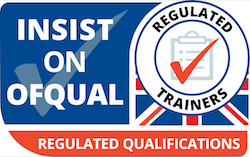First Aid Needs Assessment
Before selecting a training provider, an employer must conduct a first aid needs assessment. This assessment evaluates the workplace to determine the level and type of first aid provision required. Factors such as the nature of work, workplace hazards, size of the workforce, and previous accident history are considered to ascertain whether first aid at work (FAW) training or emergency first aid at work (EFAW) training is necessary, or if another level of training is required.
Based on the outcomes of the needs assessment, employers can then identify potential training providers capable of delivering the required level of first aid training.
At Onsite First Aid Training Company we offer:
- Emergency Paediatric First Aid
- Paediatric First Aid
- Emergency First Aid at Work
- First Aid at Work
- First Aid at Work Requalification
- First Aid at Work (Annual Refresher)
We also host a range of specialist first aid courses:
- Activity First Aid
- Emergency First Aid for Sport
- First Aid at Work (Forestry)
- First Aid at Work (Management of Catastrophic Bleeding)
Please contact us to find out more.
Understanding Due Diligence
Once you’ve identified your first aid training needs, it’s essential to conduct due diligence when selecting a training provider. With our Ofqual-regulated courses at Onsite First Aid Training Company, your due diligence is automatically fulfilled. But what does this process involve, and why is it necessary?
When evaluating potential training providers, employers must undertake due diligence to ensure that the chosen provider meets specific criteria, guaranteeing the quality and effectiveness of the training. This due diligence covers several crucial areas, and it’s important to ensure they are met. For instance, if you opt for training self-accredited by the training company or affiliated with lesser training accreditations like FAIB (The First Aid Industry Body), you would need to ensure they satisfy the following requirements:
- Teaching Standards and Syllabus Content: The training provider should demonstrate high teaching standards and an up-to-date syllabus that aligns with current first aid practices and guidelines. The syllabus should adequately cover the needs identified in the first aid needs assessment.
- Certification Process: The provider must have a reliable and recognised certification process to validate the competence of participants upon completion of the training. Certificates should indicate the level and validity period of the training received.
- Qualifications of Trainers and Assessors: Trainers and assessors employed by the provider should possess appropriate qualifications, demonstrating their competency in first aid and their ability to teach and assess. This may include first aid certificates, teaching qualifications, and assessment competencies.
- Quality Assurance Systems: The training provider should have documented quality assurance systems in place. These systems ensure the ongoing monitoring and evaluation of training quality, including the performance of trainers and assessors. Quality assurance mechanisms help maintain high standards of first aid training delivery.
What happens if you don’t do your due diligence and something goes wrong?
While training may appear as a mere compliance task, it’s critical to grasp its underlying purpose: ensuring workplace safety. Non-compliance not only elevates injury risks but also exposes you to legal liabilities. Prioritising compliance isn’t just a checkbox; it’s vital for a secure work environment.
Ineffective Training:
- Unprepared: Poor-quality training can render employees unequipped for first aid scenarios, resulting in ineffective emergency responses.
- Lack of Confidence: Subpar training diminishes employees’ confidence in their first aid skills, further hampering their effectiveness during emergencies.
Non-Compliance:
- Legal Consequences: Legal obligations mandate proper first aid training. Inadequate due diligence when selecting a provider can lead to non-compliance and legal repercussions.
- Heightened Liability: Insufficient training increases employers’ liability in accidents, as they may be held accountable for workplace safety lapses.
In essence, inadequate training and due diligence can hold you liable in worst-case scenarios.
With Ofqual-regulated training, you can rest assured that you don’t need to concern yourself with these matters, ensuring your staff receives top-notch training and all your needs are addressed. If you’d like to learn more or book training with us, please don’t hesitate to contact one of our First Aid experts at 0800 048 7213 or reach out using one of our contact forms.
You can also find more information from the HSE Guidance on these subjects here









